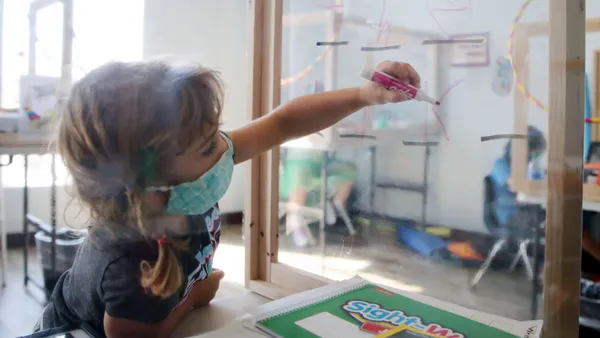Dive Brief:
- North Dakota has become the first state approved for a federally registered school principal apprenticeship program, with approval Monday from the U.S. Department of Labor as it announced the new model.
- The Labor Department officially recognized the "K-12 principal" occupation as eligible for registered apprenticeship, based on an application from North Dakota's Department of Public Instruction. The application was co-sponsored by the National Center for Grow Your Own and the Council of Chief State School Officers.
- The model is similar to one that already exists for teachers and aims to provide a solid career pathway benefiting both districts and principals.
Dive Insight:
The registered principal apprenticeship program follows in the footsteps of the Labor Department’s 2022 approval of registered teacher apprenticeships. The teacher model is similar to broader grow-your-own programs that have been used in schools nationwide to invest in high school students, community members or paraprofessionals and ease them into earning a teaching credential.
Under the principal model, districts can better prepare their future workforce and the principals in training can earn paid work experience, a “progressive” pay increase, classroom experience and a national credential, according to the National Center for Grow Your Own.
Having the option for principals is “super exciting and a great natural extension of the K-12 teacher work,” said David Donaldson, founder and managing partner of the National Center for Grow Your Own, in an email.
Under the first approved registered apprenticeship for principals, those enrolled would work for at least one year as an assistant principal while completing a preparation program to earn principal licensure. The opportunity also unlocks funding from the Labor Department of $2,000 to $6,000 per apprentice annually.
The nonprofit National Center for Grow Your Own already expanded its own “Grow Your Own” programs to support aspiring school leaders looking to level up in their districts.
“These programs were created when superintendents complained that the educators they wanted to become school leaders couldn't afford to earn their master's degree in school leadership,” Donaldson said.
Previously, the National Center for Grow Your Own has worked in partnership with some universities to get master’s degrees to cost less than $10,000 on average for these programs, he said. The new Labor Department funding could help further lower costs for aspiring principals to earn master’s degrees.
The focus to improve the principal pipeline comes as signs show turnover in the profession could be increasing. For instance, a February RAND Corp. report based on a survey of 300 school district and charter network leaders that principal turnover hit 16% nationally by the end of the 2021-22 school year — a 13 percentage point increase from pre-pandemic levels.
Research has also shown that principal turnover can hurt student achievement and also lead to more teachers leaving the classroom.
There is strong evidence that statewide professional network programs like the Missouri Leadership Development System can significantly improve principal turnover. The program provides training and support to anyone aspiring to be a principal or to those who are well into their school leadership careers. Nearly 73% of principals in the state now participate in the program.















